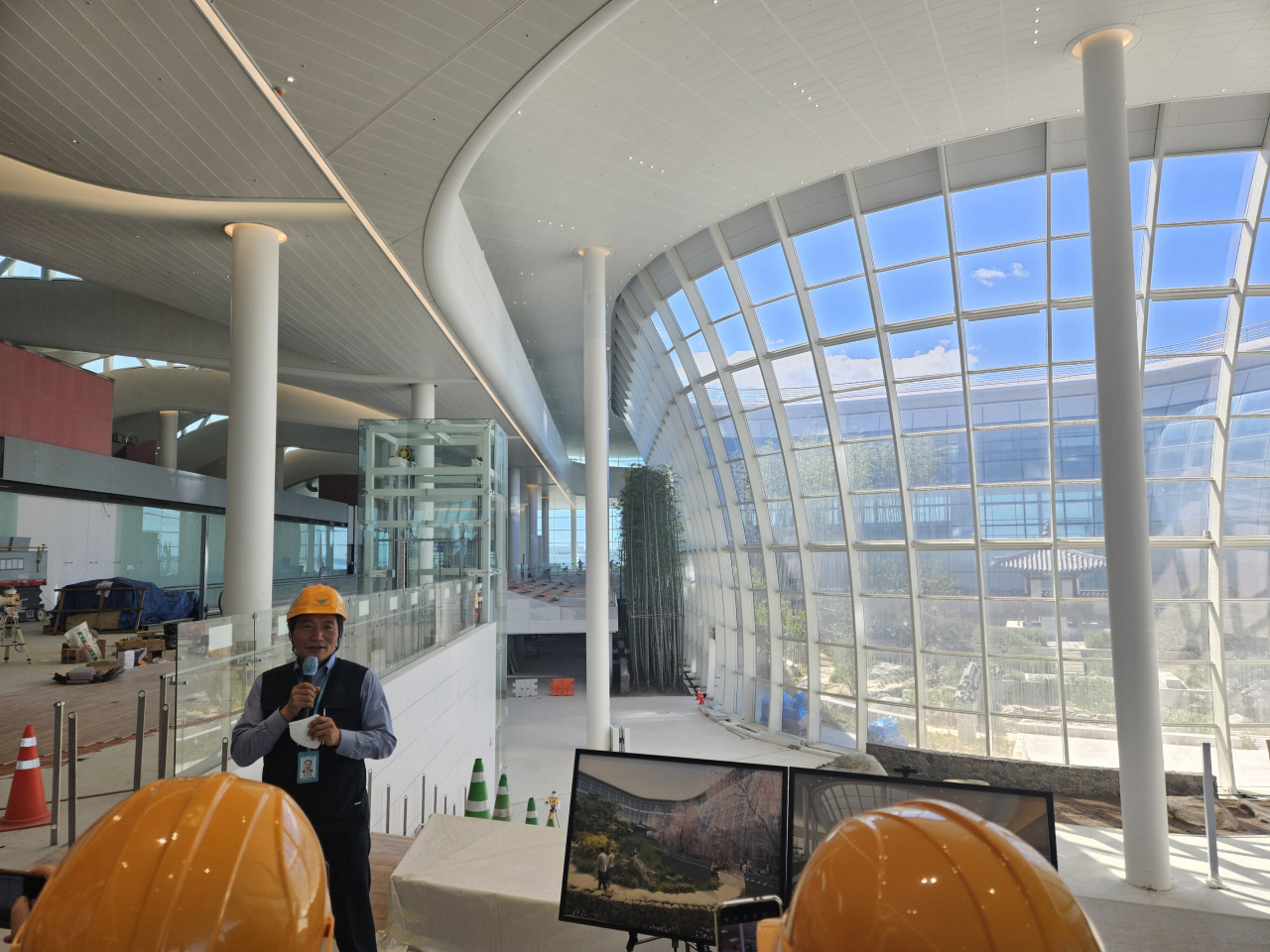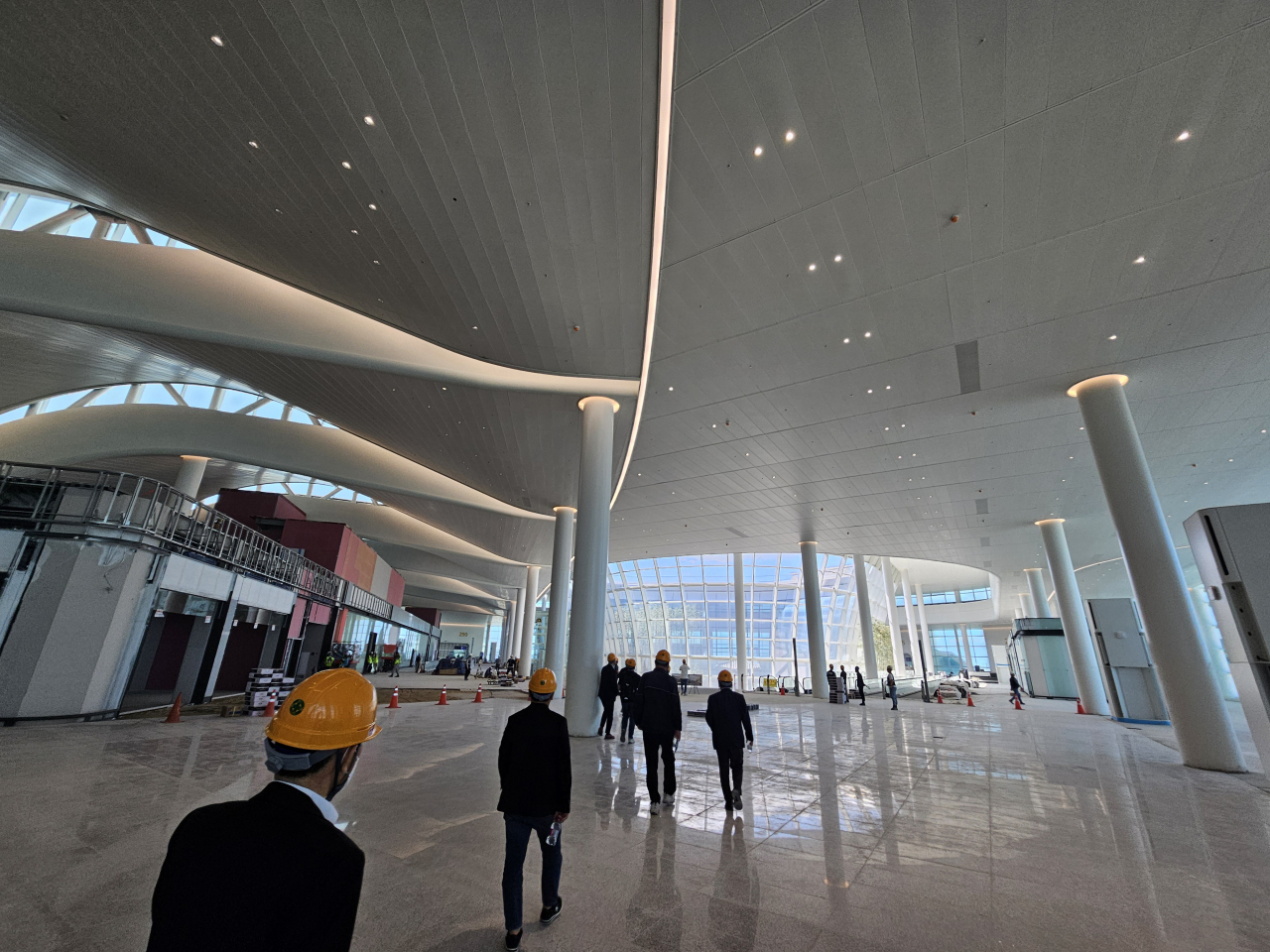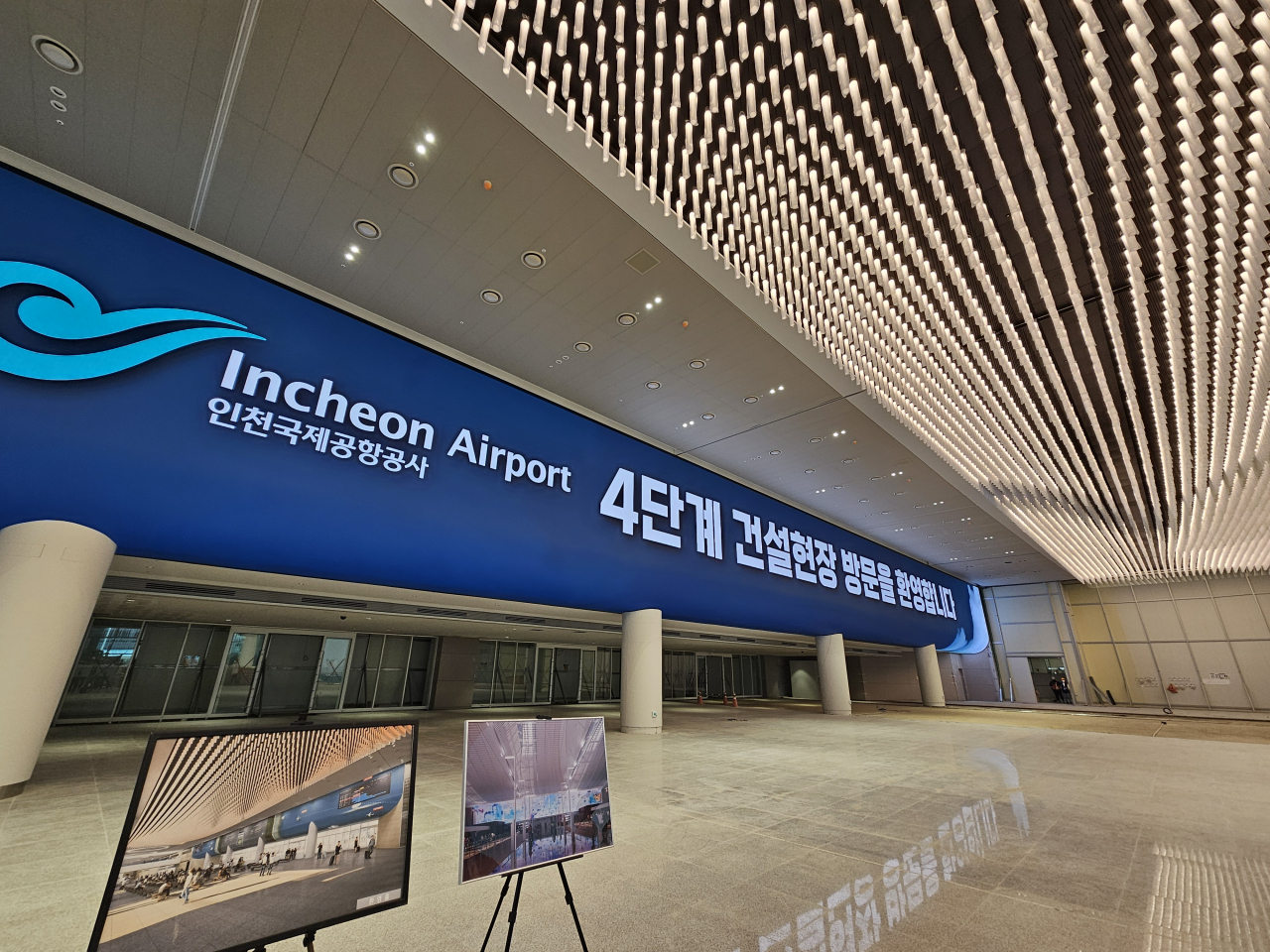Incheon Airport in final phase of expansion to be world's No. 3 in passenger capacity
By Kim Hae-yeonPublished : May 29, 2024 - 10:02

INCHEON -- Amid continuous growth in global aviation demand, the Incheon International Airport Corporation unveiled the fourth-phase construction project at the Incheon Airport's Terminal 2 on Tuesday, which can accommodate up to 106 million passengers annually. If successful, the plan will position Incheon Airport among the world's top three in passenger capacity, after Dubai and Istanbul.
Initiated in 2017, the project is in its final stage and will begin operation by the end of this year at the earliest, following a thorough test operation starting in June.
"We intend to mobilize all our resources to ensure the smooth and safe completion of the fourth phase construction and its grand opening," Lee Hag-jae, president and CEO of IIAC told reporters at one of the airport's construction sites Monday. "We pledge to offer world-class service and make sure the new Incheon International Airport becomes the biggest hub airport in Asia, connecting technology, art and people together."
The fourth construction project is a significant undertaking spanning seven years of construction. Since the planning stages in 1992, before Incheon Airport first opened in March 2001, the fourth-stage construction roadmap had been envisioned, with gradual plans to expand the airport's scale and passenger efficiency.

Upon completion, the airport's annual passenger capacity will increase by approximately 37.6 percent, from 77 million to 106 million, and its cargo capacity will rise from 5 million to 6.3 million metric tons. Annual flights are also expected to grow from 500,000 to 600,000.
The corporation has developed a four-step operational preparation plan: construction work, operations, comprehensive commissioning, and opening preparation and evaluation. Although the project is ongoing, the estimated budget of approximately 4.8 trillion won ($3.5 billion) is focused on its completion. As of April, the construction's comprehensive progress rate reached 95.34 percent.
"Leveraging 30 years of construction and operational expertise, we now prepare to be ranked as the third largest airport in terms of passenger numbers, after Dubai and Istanbul," said Cho Gyu-hyuk, the airport project's construction management deputy chief. Dubai International Airport currently accommodates 120 million passengers, followed by Istanbul International Airport's 110 million, according to Cho. According to estimates, the Incheon Airport will reach 100 million passengers by 2031 and eventually 106 million by the year 2033.
The expansion will establish Incheon International Airport as a leading hub in four key areas: smart technology, cultural and artistic experiences, passenger friendliness and sustainability.

More efficient smart check-in and smart security services will shorten boarding times, while the smart aviation monitoring control system is expected to reduce aircraft operation delays. Meanwhile, massive media art installations will be seen in front of the boarding counters, and an outdoor garden featuring a blend of traditional Korean and modern aesthetics will be available for passengers waiting for their flights. For sustainable practices, some 18 percent of the electricity will come from sustainable energy sources.
The president emphasized that this project marks the beginning of IIAC's expansion beyond Korea. "With our expertise, we have been exporting our know-how to Indonesia, Kuwait, and recently won the bid for Manila Airport in the Philippines. By 2030, our aim is to build at least ten international airports globally." Lee added.



















![[Today’s K-pop] Treasure to publish magazine for debut anniversary](http://res.heraldm.com/phpwas/restmb_idxmake.php?idx=642&simg=/content/image/2024/07/26/20240726050551_0.jpg&u=)